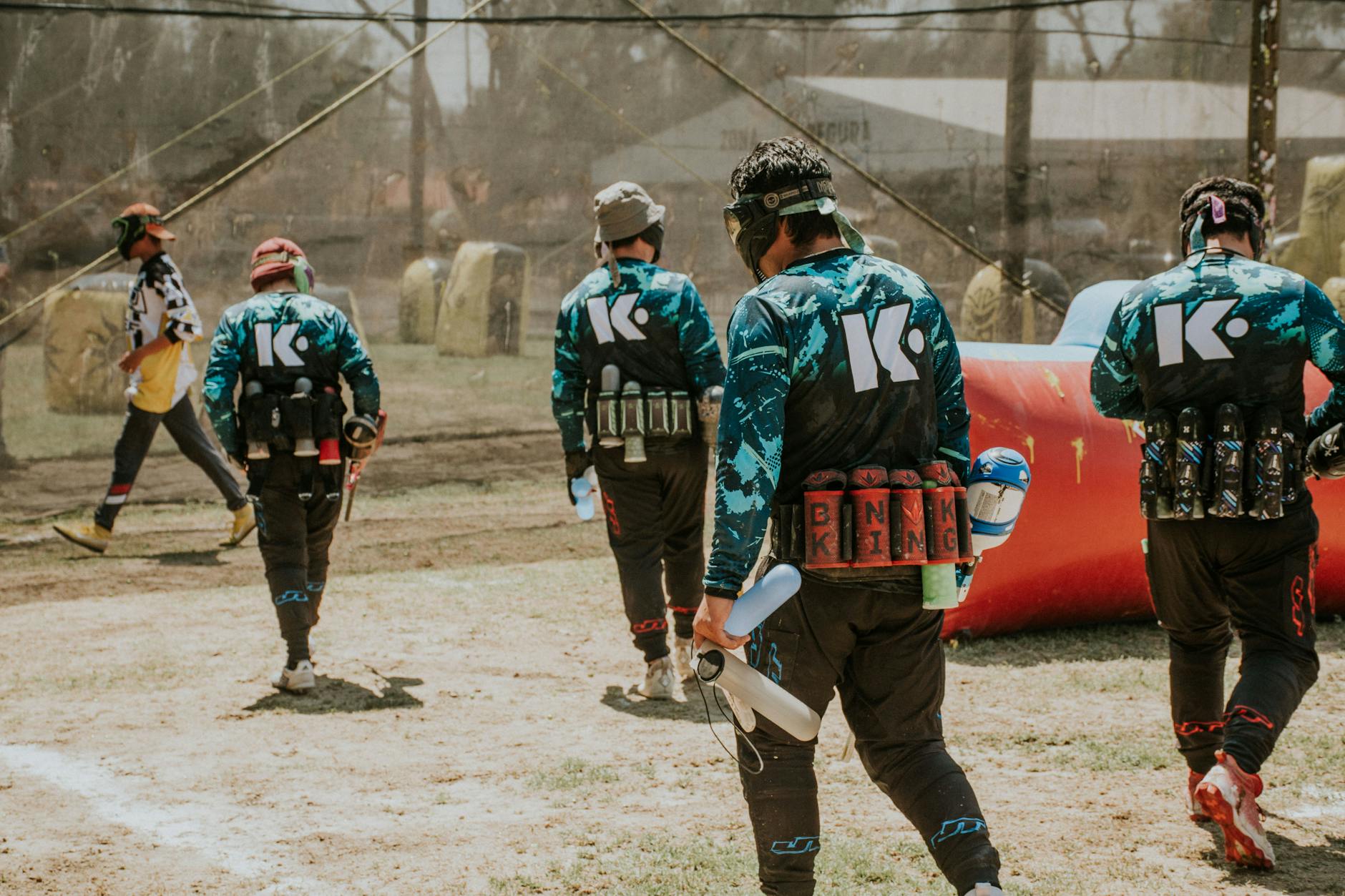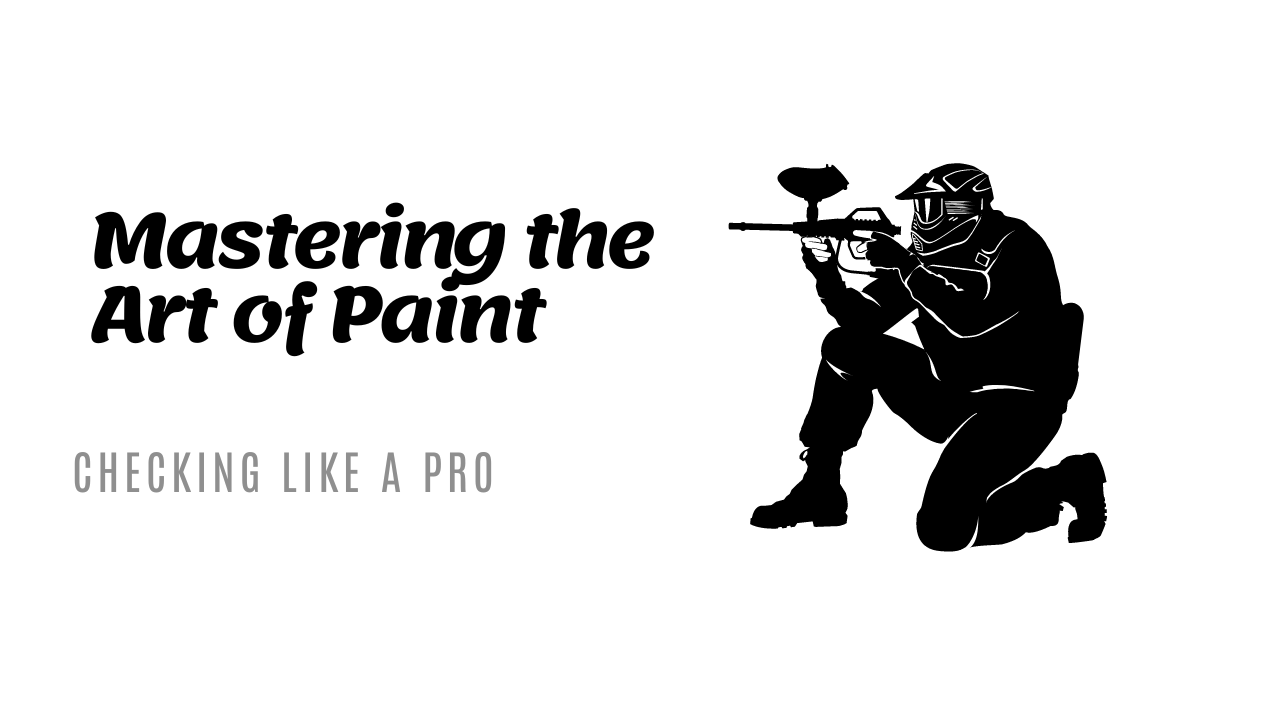Ever been hit during a heated game of paintball and wondered if it actually counts? That’s where paint checks come into play. In the fast-paced world of paintball, understanding how to properly request and perform a paint check is crucial. It ensures fair play and keeps the game enjoyable for everyone.
Paint checks happen when you or a referee suspects that a paintball has broken on you or another player, but it’s not immediately clear. Handling this correctly can mean the difference between staying in the game or walking off the field. Quick and honest paint checks help maintain the flow of the game and uphold sportsmanship, minimizing disputes and confusion.
So, let’s dive into why mastering this skill can seriously up your game and enhance your overall paintball experience.
Understanding Paint Checks
In the dynamic game of paintball, understanding paint checks is crucial for maintaining fairness and integrity on the field. Let’s delve into the various aspects of paint checks that every paintball player should grasp.
Types of Paint Checks
Paintball players employ different methods for conducting paint checks to ensure that hits are accurately identified. Here are the primary types of paint checks used in paintball:
- Visual Checks: This involves visually inspecting oneself or a fellow player for paint splatter after being hit during gameplay. It’s a quick way to determine whether a player has been eliminated.

Photo by Amar Preciado
- Barrel Swabs: Players may use a barrel swab to check if their paintball marker barrel is clear from any paint residue, which could affect the accuracy of their shots.
- Referee Checks: When a referee is called for a paint check, they will inspect the player in question to determine if a hit occurred. Referee checks are essential for resolving disputes and maintaining the integrity of the game.
Each type of paint check serves a specific purpose and contributes to the overall fairness and enjoyment of the paintball experience.
Rules and Etiquette
Paintball associations and fields establish rules governing paint checks to uphold a standard of sportsmanship and fairness. Players should adhere to the following guidelines for paint checks:
- Call for a Paint Check: If you suspect you’ve been hit but are unsure, call for a paint check by signaling a nearby referee or using a designated call.
- Honesty and Sportsmanship: It’s imperative to be honest and honorable when involved in a paint check. Acknowledge hits and cooperate with referees to maintain the integrity of the game.
- Respect Referees: Players should respect referees’ decisions during paint checks and follow their instructions promptly. Disputes should be handled calmly and respectfully.
Understanding the rules and etiquette of paint checks not only fosters a positive playing environment but also promotes a sense of camaraderie and mutual respect among paintball enthusiasts.
For further insights into the art of paint checks and the impact they have on paintball gameplay, consider exploring additional resources such as The Art of The Paint Check and Paintball Safety Rules.
Handling Paint Checks Effectively
Effective handling of paint checks in paintball is crucial for fair play and sportsmanship. Here are essential tips to ensure a smooth paint check process.
Communication During Paint Checks
Clear communication is key during paint checks in paintball. Players should maintain respectful communication with referees and other players to avoid misunderstandings. By expressing concerns calmly and clearly, players can help resolve issues promptly. Remember, effective communication contributes to a positive gameplay experience for everyone involved.
 Photo by Vlad Nazarov
Photo by Vlad Nazarov
Resolving Disputes
Disputes during paint checks may arise, but it’s essential to address them constructively. Players should follow established protocols for dispute resolution and remain focused on finding solutions. Encouraging open dialogue and respecting differing perspectives can lead to fair outcomes. Remember, prioritizing sportsmanship in resolving disputes enhances the overall paintball experience.
 Photo by Amar Preciado
Photo by Amar Preciado
Practicing Paint Check Procedures
Paint check procedures are crucial for effective gameplay in paintball. Engaging in mock scenarios can significantly enhance your skills in handling paint checks. By simulating hypothetical situations, players can sharpen their decision-making and communication abilities to excel on the field.
Mock Scenarios
Create vivid scenarios where players can immerse themselves in various paint check encounters. Encourage role-playing to simulate real-time game situations, prompting players to react promptly and accurately. Practicing with different scenarios will help in honing your instincts and teamwork skills during intense gameplay moments.
Introducing practical scenarios such as sudden ambushes, flag defense strategies, or strategic movements can elevate players’ understanding of different game dynamics, fostering a more immersive and engaging paintball experience. Utilize these simulations to improve coordination among team members and enhance overall game performance.
Now, grab your gear, gather your team, and delve into these paint check mock scenarios to elevate your paintball prowess. By embracing these exercises, you’ll be better prepared to tackle any challenge on the paintball field, showcasing your agility, strategy, and communication skills.
Photo by Vlad Nazarov
Conclusion
Mastering paint checks is a crucial skill in paintball that enhances your gameplay and ensures fairness. Remember, the foundation of a great paintball experience is built on fair play and sportsmanship. Always communicate effectively with referees and other players when a paint check is needed. This ensures that everyone is on the same page and reduces conflicts.
Follow the strategies discussed, like calling for a referee when in doubt and staying still during a paint check. These practices not only show respect for the rules but also help maintain the flow of the game. Apply these tips in your next game to see a noticeable improvement in how you handle paint checks, making your paintball experience more enjoyable and conflict-free. Embrace these guidelines to foster a supportive and fair environment for everyone involved.

